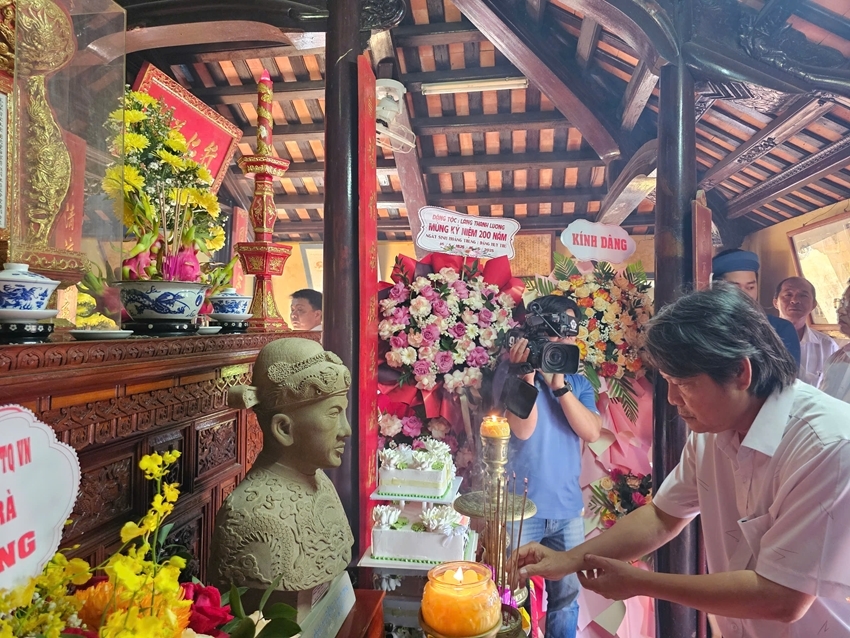 |
| Incense offering at the worship house of celebrity Dang Huy Tru |
Dang Huy Tru (1825-1874), whose courtesy name was Hoang Trung and pen names were Vong Tan and Tinh Trai, was born in Thanh Luong Village, Huong Xuan Commune, which is now part of Huong Xuan Ward, Huong Tra Town, Hue City. He was a patriotic Confucian scholar during the 19th-century resistance against French colonialism, a high-ranking official of the Nguyen Dynasty with progressive reformist ideas. His entire life was a shining example of dedication to the people and the nation. He was also a writer, poet, politician, economist, military strategist, and diplomat. Additionally, he is considered the founding father of Vietnamese photography.
Although his life spanned only 49 years, with his talent and passion, Dang Huy Tru left behind many legacies. According to historian Le Van Lang: “Compared to other Confucian scholars of his time, the achievements that Dang Huy Tru left behind were not only outstanding but truly exceptional”.
On this occasion, an exhibition titled “Dang Huy Tru- Life and Legacy” was held at his worship house. The exhibition showcased nearly 50 images and documents reflecting his life and significant contributions in various fields, including culture, education, economy, military affairs, literature, and efforts to preserve and promote the historical value of Dang Huy Tru’s legacy in the present era.
As part of the commemoration program, a cultural and historical exploration activity titled “Homeland Cultural Heritage” was organized for students right in the ground of Dang Huy Tru’s worship house. This heritage exploration activity aimed to enhance students' understanding of history, promote patriotic education, and inspire pride, learning spirit, and modeling for future generations.
Through these meaningful activities, students were encouraged to raise their awareness of heritage preservation, actively seek knowledge, and contribute to positive changes in attitudes and behaviors toward cultural and historical values. This helped promote a sense of responsibility and appreciation for traditional heritage among students, the future custodians of their homeland and country.
By N. Minh